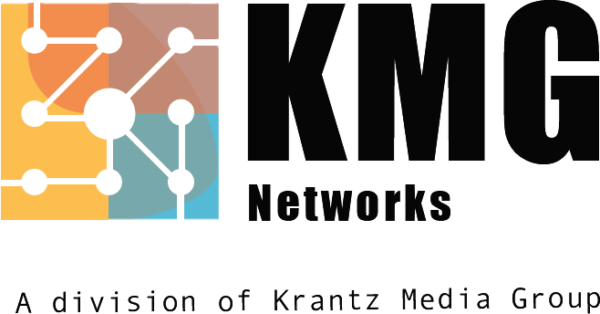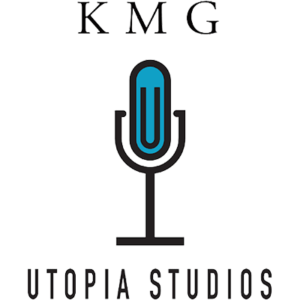Podcasts are mostly an auditory experience. Connecting with your audience is accomplished by creating episodes that feature voices, sound bites and clips, audio signatures, jingles, sound effects and any other audio feature that enhances the podcast. The words exchanged are valuable and make people want to listen (or not listen) to your podcast.
While podcasts are thoroughly audio, there is one visual aspect that can’t be swept under the rug and that’s podcast cover art. In fact, the success of your show might even depend on it. Of course quality podcast content is king, but shortly after, it’s your cover art that draws in curious eyeballs.
Here’s what you need to know about creating compelling podcast artwork so you can make it right the first time without having to go back to the drawing board.
Before Designing:
- Know Your Audience
Right off the bat, it’s important to have a clear understanding of what your podcast is
about. It might be obvious to you, but is it straightforward for your audience? Be as specific as possible, so you can brainstorm ways to make sure it comes through in your artwork. Ask yourself: What is my podcast about? Who are my listeners? What tone do I want to convey?
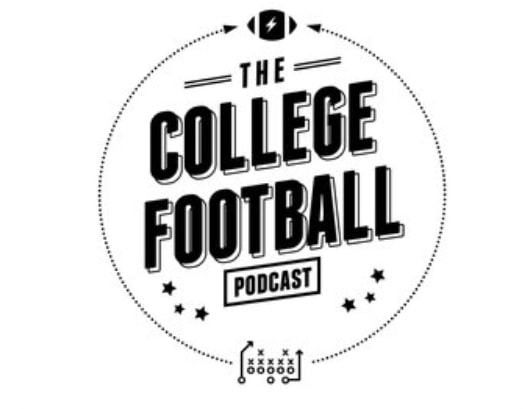 Understand Restrictions And Requirements
Understand Restrictions And Requirements
The technical specifications are the foundation from which your podcast art will spring forth! But seriously, getting these right will set you up for success since most podcast directories follow Apple Podcasts. If your artwork doesn’t work out, you’ll be disappointed and have to do it all over again. So do your homework:
- 3000 x 3000 pixels
- Resolution of 72 dpi
- JPEG or PNG
- RGB color
While Designing:
- Decide On Imagery
What will your cover actually depict? Podcast cover art might be small, but it sure spans far and wide to bring a visual flavor to every podcast topic. Photography tends to be preferred by podcasts that are scientific, cover hard news or highlight real stories. Drawings and illustrations can set the mood for comedy, or a host’s personality. It’s important to place your audience first here. Don’t be shy. It’s better to be specific and know what your audience wants to see so you can give it to them. Try to avoid overused podcast imagery like mics and headphones. Instead, opt for a creative interpretation of the tools you use and your subject, topic or theme. Also, be weary of adult language and images.
- Choose A Style
Colorful? Serious? Photography? Illustration? A head shot? There are so many ways to express the essence of your podcast. Go with a style that represents who you are and who you want to be in the eyes of your audience.
- Play with the 6 basic elements of design: Line, shape, texture, framing, color and type.
Incorporating one or a few of these creates a dynamic flow and graphic language helpful for reflecting the look and feel of your podcast.
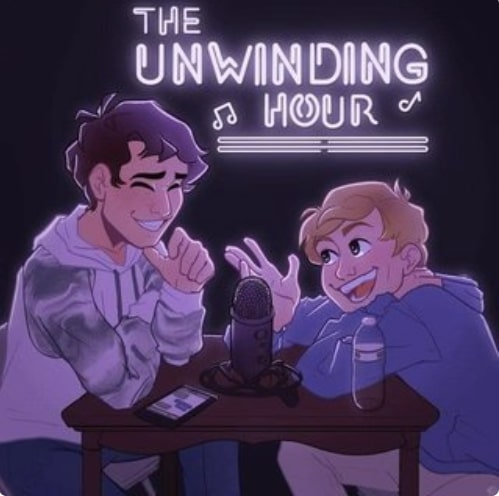 Select Appropriate Typography
Select Appropriate Typography
Not all fonts are created equal. When shrunken down, some might be rendered illegible. Also, using more than one font can be distracting. Choose clean, easy to read fonts – no more than two; one serif and one sans-serif.- Go With Fewer Words
You might feel inclined to include every word that fits what you’re trying to describe, but you’ll quickly come to see that the cover art is small. Anything over 5 words tends to look crowded and can be hard to read.
- Ensure Your Subject Comes Through
There is a massive variety of podcasts out there, so spend the time crafting cover art that reflects the type of podcast you have. Is it about hobbies? Business, brand or religious institution promotion? Personal? Pro-tip: Seek out what your competition is doing and notice what their art direction approach is.
After Designing:
- Establish Where Your Podcast Cover Will Be Used
Not only will your podcast cover art be used in s podcast directory and other outlets, but think of all the opportunities you have to show it off via social media accounts, email signatures, business cards and more. Versatility is what will get you seen and remembered.
- Be Visually Consistent
As your podcast is making the rounds across social media, ensure your imagery is consistent. Same colors, same imagery and same type. This way, you reinforce your brand presence and create harmony for people to recognize you.
- Use Your Artwork Everywhere
Design your podcast cover art with other mediums and their respective sizes in mind so you can “cross-pollinate.” You might have to tweak it here and there, but utilize most of the design elements so you’re still recognizable no matter where you’re featured.
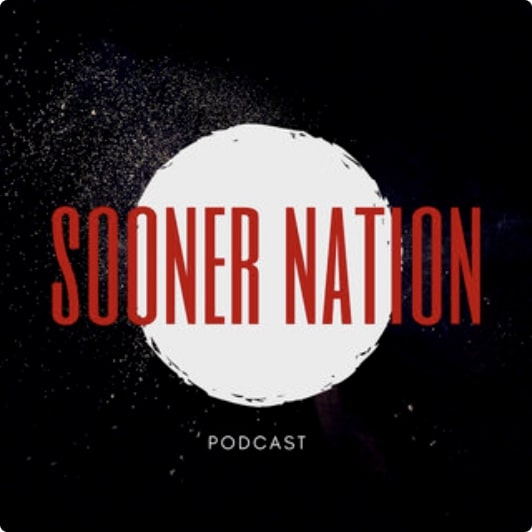 Get Marketing
Get Marketing
Now that your podcast is recorded and edited, polished and ready to go, use your podcast artwork to make a splash. Feature it on your website, social media and live stream to YouTube for maximum exposure.
Trust TalkShoe to provide you the tools and support you need to host, produce and store a knockout podcast. Create professional-sounding episodes and experience what it’s like to broaden your audience with the analytics tools that bolster your reach. Plus, with TalkShoe’s virtual recording studio, you can produce high quality content that listeners from near and far want to listen to.
It’s easy to record a podcast with guests remotely anywhere they are, no matter where you are. Learn more about TalkShoe here.
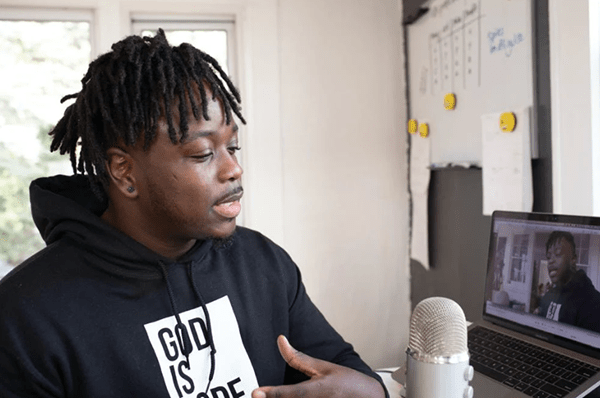 Remote interviews, co-hosts overseas, collaboration across town; When it comes to creating an entertaining and informative podcast, thanks to technology, there’s no limit to what you can do! Furthermore, with advances in podcasting pushing the edge of popularity and reach, podcasters have choices when it comes to recording in person or from afar.
Remote interviews, co-hosts overseas, collaboration across town; When it comes to creating an entertaining and informative podcast, thanks to technology, there’s no limit to what you can do! Furthermore, with advances in podcasting pushing the edge of popularity and reach, podcasters have choices when it comes to recording in person or from afar.
Curious to know more about how to record a podcast with guests remotely? Read on for a few nuggets of wisdom to get you sorted before, during and after your session.
Whether you’re used to recording IRL or you’re starting to think about starting a podcast, you might be wondering a few questions:
- My living space is small and cramped, how can I create a good recording environment at home?
- I’m going to need some kind of software and it’s probably going to be expensive! What can I get that’s affordable?
- I probably can’t record video either, can I?
- How do I edit my episodes so they sound professional?
Before
Set yourself up for a flawless podcast recording by investing in the best tools and accessories you can afford. Here are a few essentials no podcaster should be without!
Microphone
Your device’s built-in speakers and mic are fine for casual use, but when producing a high quality sound, it’s just not good enough. You want your audio to be as smooth sounding as possible – otherwise who’s going to listen?
Instead, go for a USB mic (excellent for beginners) or spring for an XLR mic that will really deliver crisp and clear sounding audio.
Headphones
Second to a good mic, a proper headset will deliver sound with minimal feedback and is necessary for you, your guests and or co-hosts. Even earbuds will work, but if you want to have a dedicated set, it’s extra helpful to have headphones that allow you to adjust the sound as you move along, when you can adjust the distance between your mic, or turn up the volume.
Space
Sure a perfectly soundproofed recording studio would be ideal, but that’s not always possible. Instead, make small adjustments that can vastly improve the quality of your recording:
- Move away from windows to avoid random noises from coming in
- Turn off fans, AC, dehumidifiers or anything else that could interfere with the background noise
- Try recording in a carpeted room to muffle unwanted sounds
- Hang a “Do Not Disturb Sign” to reduce the likelihood of someone walking in
- Get a reflection filter that fits behind the mic to eliminate echoes
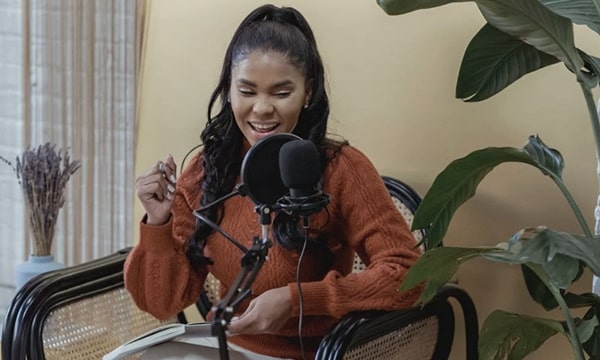 Lively Guests
Lively Guests
Part of a great recording is the ability to create a fun and entertaining environment for guests so they feel comfortable enough to relax and open up. A set of thoughtful questions, already-researched stats and quotes and of course, choosing the right guests to match the energy of your show will all come together to create podcasting magic!
Try matchmaker.fm to connect you to a community of other like-minded individuals who can add depth and dimension to your interview or podcast episode.
During
When recording your podcast remotely, choose software that has the ability to record high quality sound using a virtual recording studio. A virtual recording studio allows for multiple people to be connected to each other to work and collaborate in an online space. There’s no need to interview in real life or sit beside your co-host in a four-walled room.
Pro-tip: Recording video alongside audio provides you with more options for content down the line. Perfect for social media and YouTube, a video recording of your podcast gives listeners turned viewers a behind-the-scenes look at what’s happening when you record your podcast. Plus, you can make bite-sized clips for marketing and advertising purposes too!
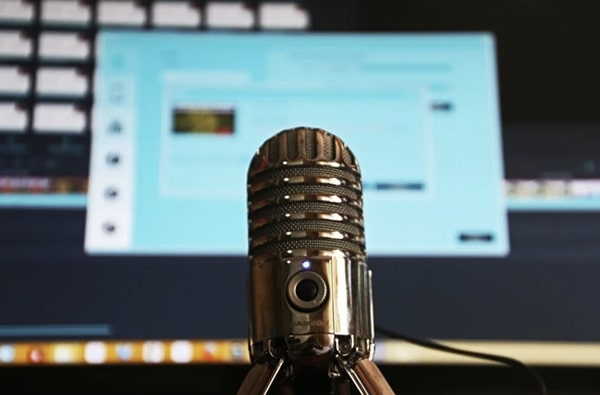 Instead, a virtual recording studio provides all the same benefits and features, but lives online, providing you with everything you need to record, edit and produce your podcast from wherever you and your counterparts are.
Instead, a virtual recording studio provides all the same benefits and features, but lives online, providing you with everything you need to record, edit and produce your podcast from wherever you and your counterparts are.
Make use of features that enrich the quality of your podcast like screen sharing that brings others onto your screen for navigation in real-time and better collaboration; record locally using 1080p video and crystal clear audio for a sharp viewing and sound experience; live stream to YouTube and share your unique URL so people can watch you in real-time; and producer mode controls that adjust settings and modes for optimized viewing.
After
Once you’ve pulled off a successful podcast and stopped recording, this is where editing and the final touches that will make your podcast shine come into play. In the virtual recording studio, you can connect and collaborate with other producers or editors (or work solo!) to really make your final cut a masterpiece!
Here’s the best part: You can choose to work from your masterfile (the finalized file comprising all audio or video tracks as one) or individual files (the masterfile separated into multiple tracks: audio and video) to edit together an ultra clear sounding podcast without scratches, and poor sounding background noise. Plus, if you choose to record video, you have a video file to work with for social media content!
With TalkShoe, you can create professional podcasts whether you’re a seasoned expert or brand new to the game. Experience what it’s like to record and stream, export and import and host and store your podcast with ease.
Plus, with TalkShoe’s virtual recording studio, you can produce high quality content that listeners from near and far want to listen to. Bring in guests to host engaging interviews, co-host from anywhere and do all your producing, editing and storing in one place; in the virtual recording studio that comes loaded with online recording features, the ability to mix through virtual consoles plus virtual gear and other industry-leading tools to shape how your podcast comes together!
It’s easy to record a podcast with guests remotely anywhere they are, no matter where you are. Learn more about TalkShoe here.
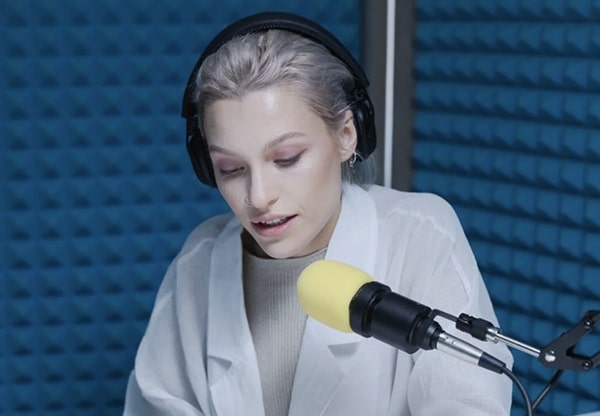 Whether you’re getting together your first or 100th podcast episode, knowing how to write a podcast script will ensure your show is a hit. Writing out your thoughts, cues, important information, interview questions and prompts in a cohesive flow sets the tone and paves the way for a podcast you can lead without worrying about dead air or lack of conversation.
Whether you’re getting together your first or 100th podcast episode, knowing how to write a podcast script will ensure your show is a hit. Writing out your thoughts, cues, important information, interview questions and prompts in a cohesive flow sets the tone and paves the way for a podcast you can lead without worrying about dead air or lack of conversation.
A podcast script also saves you time when editing after you’ve recorded. The script acts as a structure, as well as a support and reference if you find you’ve lost your way or train of thought. A script gives you peace of mind, so you know you won’t run out of things to say!
Here’s how to write a podcast script:
One of the most important things to remember while writing a podcast script is that people will be listening intently to your words. If you write the script and read it off word for word, your audience will be able to detect it. A natural, conversational rhythm is what sounds the best, otherwise, it’s too formal and comes across as contrived and rigid.
Support the direction of your script and veer away from formality by injecting your own personality. You don’t have to get caught up on the exact verbiage, the perfect word or the precise cadence. Instead, choose sayings and metaphors and throw in a joke now and again, only if it serves your purpose and enhances your message.
Choose from a few different podcast styles depending on your message and what your audience likes. Stick to one, or experiment to find what works best for you:
Informational
The most popular type of podcast, an informational podcast, tends to require a detailed script. Introducing the topic, teaching listeners about it then presenting facts, anecdotes and statistics need to be held up by pre-planned thoughts and content research. This type of podcast can be long form (up to 90 minutes) or be presented in smaller, more digestible chunks (5-30 minutes).
Relying on a detailed script in this case provides the foundation for an entertaining podcast that is accurate and rich in well-presented and documented information.
Conversation/Interview
A conversation or interview might sound natural and off the cuff (which is a good sign!) but is normally pretty planned and thought out ahead of time. If a conversation sounds flowy, that means the host and guest are doing an excellent job at referring to their script!
 Pro-tip: It’s good to stay on track in this style so you don’t have to spend too much time editing later. That being said, you also don’t have to go too much into detail. You can include bullet points of topics and questions to cover, and have some extra ideas on hand.
Pro-tip: It’s good to stay on track in this style so you don’t have to spend too much time editing later. That being said, you also don’t have to go too much into detail. You can include bullet points of topics and questions to cover, and have some extra ideas on hand.
In an interview scenario, it’s also a great idea to be well-versed with the guest. Who are they? What’s their elevator pitch? What are they on the show for? Do they have a new book out, movie, appearance, accolade? What topics of conversation will shine the best light on them?
Comedy/Storytelling
Not all podcasts have to be so educational! In fact, a lot are theatrical and entertaining for listeners. To some degree, improvisation is encouraged, but depending on the experience of the podcaster, scripting might be a necessary means of delivery. Ask yourself: Do you prefer reading a pre-written piece, or can you jot down ideas and fill in the gaps from there?
Every podcast will naturally ebb and flow and change according to the content and podcaster, however, following a basic template can align your ideas and content into a simple structure:
- Segment Intro
Open your podcast with a recognizable audio signature, and a quick phrase that captures the essence of who you are. This should be recorded and reused as an opening frame for your podcast every time.
- Segment: Welcome
Welcome listeners, introduce yourself and your co-host (if you have one!) and this episode’s happenings. This might be the most detailed part of your podcast. Make sure you have all the bits and pieces written down so you don’t forget anything.
- Segment: Topic
Depending on the style of your podcast, jump right in to the key questions, interview topics and subjects you’ll be discussing. What are you chatting about? Will you have a guest or contributor?
- Segment: Segue
Once the thought, idea or contributing guest has said their piece, you can transition into the next segment of your podcast.
- Segment: Additional Content
In a longer podcast, you can add another segment here. This could be an oppositional take on the previous conversation, a new guest or a continuation of the topic. Shorter podcasts can sign-off and jump into the outro.
- Segment: Sign off
Go over the key points you covered in the episode, and don’t forget to include any other points of contact like your social media handles, website, sponsors or affiliations. Also include what listeners can expect from the next episode.
- Segment: Outro
Conclude with the same signature audio and catchphrase to close the experience.
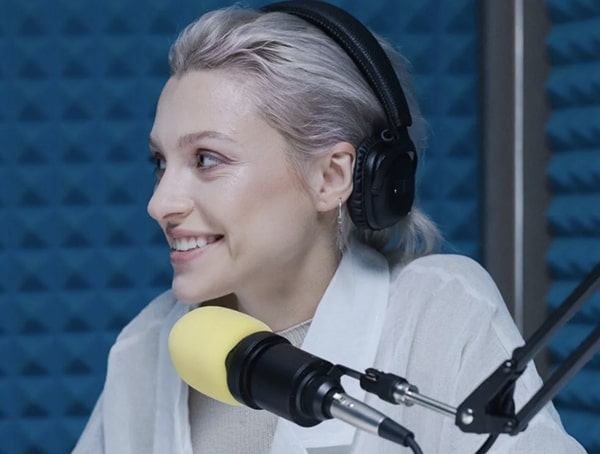 Here are a few more helpful tips for how to write a podcast script that sounds professional and works for your listeners:
Here are a few more helpful tips for how to write a podcast script that sounds professional and works for your listeners:
- Write prompts and segments that are easy to follow and act as a marker that indicates what’s coming up next for listeners. This gives listeners the option to fast forward and drop in where they please
- Practice before recording so you can rewrite your pace, content vocabulary and adjust the length of your episode accordingly.
- Work in tandem with your co-hosts to prevent anyone from speaking over each other. Rehearse together using a digital studio that allows you to meet and work together from wherever you are or at least have a conversation during the script development about how you’ll plan to share air time.
Join TalkShoe, an easy-to-use, reliable and all-in-one podcasting platform that caters to a community of podcasters. Create professional-sounding podcasts fast and effectively. No previous experience required! Get your message out there and your podcast heard by your audience, near or far. Sign up with TalkShoe today.
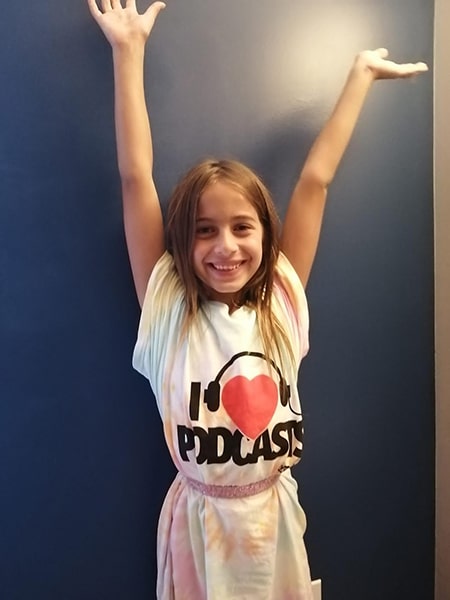 Every summer, Podcast Movement, the world’s largest podcast conference, attracts thousands of talented podcasters and leading professionals from every corner of the world to come together to share, grow and evolve. After a year hiatus, Podcast Movement 2021 in Nashville was bigger, brighter and came back fiercer than ever before – and TalkShoe was there for every step of the way!
Every summer, Podcast Movement, the world’s largest podcast conference, attracts thousands of talented podcasters and leading professionals from every corner of the world to come together to share, grow and evolve. After a year hiatus, Podcast Movement 2021 in Nashville was bigger, brighter and came back fiercer than ever before – and TalkShoe was there for every step of the way!
At Podcast Movement 2021, we got a world class education and got to network with the best. We got to connect with brands and meet hundreds of companies from all over. We rubbed shoulders with industry movers and shakers at some of the more low-key gatherings as well as the upscale parties...this is Nashville after all!
TalkShoe got to pair up with co-venture partners Krantz Media to talk to podcasters and producers to find out what they want and need in a podcasting platform. Not only did we get to showcase TalkShoe as a living and breathing brand, we got to size up the competition! We attended multiple keynotes, and presentations and stuck around to see Mark Cuban work his magic for the crowd!
Of all the product launches, demonstrations, lectures and press chats, one of the most interesting things we learned is that podcasters need help with marketing. While the technology is there to produce, stream and store content (hello TalkShoe), the game changer for podcasters both new and experienced is including a marketing plan that will elevate their offering and get them seen...and that’s good news for us! TalkShoe’s new platform has been redeveloped to be even easier and more straightforward to host, record, produce and edit high quality podcasting content.
Curious to know more? Sign up here.
Other TalkShoe highlights from Podcast Movement 2021 in Nashville include:

Meeting up with a few fellow Canadians from Quill IT. We got to catch up and talk shop while also doing relationship management. @podcastmovement @quill.inc

The full TalkShoe team with Gary Krantz, Founder and CEO of Krantz Media Group, who we’ve been working with for months!
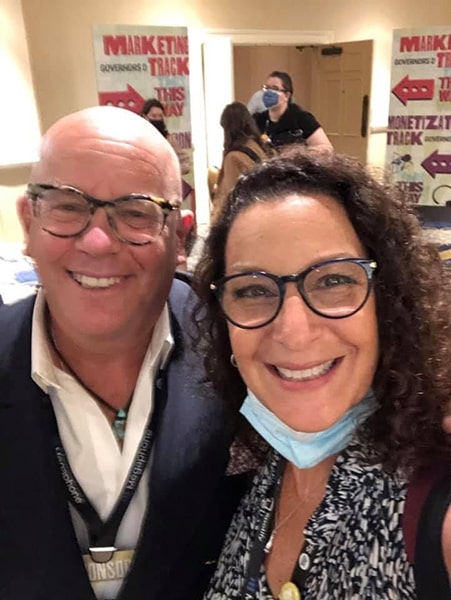 A behind-the-scenes selfie with Gary Krantz and E.B. Moss, Founder of Moss Appeal branding and marketing consulting for podcasts, social media and sustainable marketing. @gkrantz @quitealiving
A behind-the-scenes selfie with Gary Krantz and E.B. Moss, Founder of Moss Appeal branding and marketing consulting for podcasts, social media and sustainable marketing. @gkrantz @quitealiving
And that’s a wrap! TalkShoe came, saw and conquered Podcast Movement 2021, Nashville.
If you’re looking to add a whole other dimension to your podcast, whether it’s your first episode of your hundredth, here’s how to to kick up a storm with your podcast; The new TalkShoe is coming this fall, and as an early adopter, you can gain special partnership and monetization opportunities.
Built specifically for podcasters and producers, you can host and store, distribute and syndicate and easily transcribe your podcast on TalkShoe’s audio and video hosting platform. It’s your podcast, your way.
Sign up for early access to TalkShoe’s new platform and to stay on top of release dates, marketing bonuses and more!
 When it comes to marketing a podcast, there are truly no limits to what you can create. The landscape is continually shifting and evolving with an ever-expanding list of new mediums, platforms and concepts to experiment with.
When it comes to marketing a podcast, there are truly no limits to what you can create. The landscape is continually shifting and evolving with an ever-expanding list of new mediums, platforms and concepts to experiment with.
Thinking outside the box will always be rewarded, so don’t be afraid to color outside the lines here and there. Coming up with new and exciting ways to promote your podcast is all part of the fun, so roll up your sleeves, get crafty and try out some new tactics. Be careful what you wish for—they just might work!
But first, get a leg up on the competition and make sure you aren’t missing out on any key opportunities. Here are five things most podcasters overlook when it comes to growth:
1. Audience engagement
Gone are the days of one-sided monologues that don’t allow the audience to weigh in. Your podcast and all its associated marketing channels should be more of an interactive dialogue that welcomes audience feedback, suggestions and perspectives.
You could be doing everything right marketing-wise, but if you’re not taking the time to really connect with your audience, you’ll be missing out on a great chance to win over lifelong followers. The good news is that there are plenty of creative ways to interact with your audience and create a community surrounding your podcast.
 Here are just a few ideas for engaging listeners in the fun and being more of a proactive podcaster:
Here are just a few ideas for engaging listeners in the fun and being more of a proactive podcaster:
Livestreaming. In addition to releasing regular pre-recorded podcast episodes, going live on Facebook or Instagram to answer questions in real time can be a great way to build trust with your followers and engage them about your specific topic or area of focus.
Audience polls. What’s the best way to find out what your audience wants content-wise? Just ask! Asking questions or conducting surveys through Instagram or your e-newsletter can be a great way to figure out what’s working well for your brand and what needs some rejigging. As long as you’re engaging with your followers in a meaningful way, they’ll gain trust in you over time and feel like their opinions are valued.
Events. Hosting an event, whether virtual or in-person (provided it’s COVID-safe), is a great way to engage with your audience, meet like-minded people in your industry and continue fostering a sense of community among your followers. Even hosting a casual weekly webinar at the same time each week can help you grow your network and add an interactive element to your brand.
2. Podcast directories
One of the best ways to turn up the volume on your podcast and make sure you’re maximizing listeners is to submit your show to as many podcast directories as possible. In addition to submitting your RSS feed to major listening apps like Apple Podcasts, Spotify, or Google Podcasts, expand your reach to other directories or “podcatchers” as they call them in the biz.
There are dozens of podcatchers out there that can expose your show to a broader listener base and ultimately help you gain subscribers. Here are some examples of podcast directories that aren’t talked about as often but are still effective:
3. Collaborations
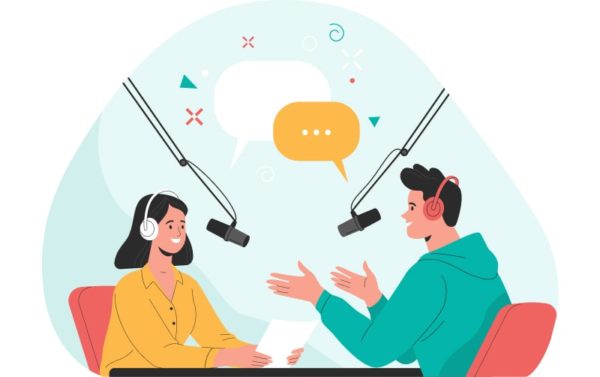 Although other podcasters are technically “the competition,” the podcasting world is all one big happy family at the end of the day. Working together is more effective (and fun!) than creating alone in a silo, so don’t hesitate to reach out and make some new friends. Collaborating with other podcasts operating in a similar space to you can help both of you boost your followings and gain exposure to new potential listeners.
Although other podcasters are technically “the competition,” the podcasting world is all one big happy family at the end of the day. Working together is more effective (and fun!) than creating alone in a silo, so don’t hesitate to reach out and make some new friends. Collaborating with other podcasts operating in a similar space to you can help both of you boost your followings and gain exposure to new potential listeners.
There are plenty of creative ways to collaborate with another podcaster, but it doesn’t have to be complicated. Sharing a simple tweet or Instagram story to shout out each other’s accounts is an easy yet effective way to grow your audience in no time.
Here are some ideas for ways to collaborate with your fellow creators:
- Guest blogs
- Giveaways
- Products
- E-courses
- Webinars
4. Online forums
While everyone knows that social media is where it’s at these days, some creators tend to overlook lesser-known platforms in favor of focusing solely on the typical Facebook, Twitter and Instagram deal. It’s definitely important to upkeep these more mainstream channels, but while you’re at it, try looking into other platforms and online forums like Quora or Reddit to continue building your community and tap into a more niche audience.
If you’re going to experiment with online forums, make sure to add value with every post and contribute to conversations authentically as you would IRL. Try to avoid sounding salesy or like you’re pushing a product, and only add to the threads you’re genuinely interested in or knowledgeable about.
Here are some more off-the-beaten-path platforms to check out if you’re looking to explore:
Clubhouse
WattPad
Twitch
Influenster
SoundCloud
5. Stay consistent
In the early stages of their journey, many podcasters overlook the importance of getting into a steady rhythm of content creation. Consistency is key in any discipline, and podcasting is no exception. Leaving too much time between episodes or releasing content in spurts could confuse your listeners, whereas releasing new episodes on the same day each week gives them something to look forward to and will ultimately contribute to your growth overtime.
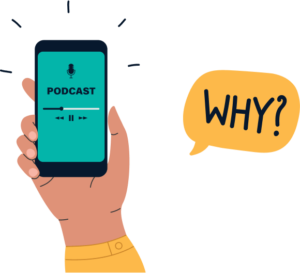 These days, it seems like every brand has a podcast—no matter the industry, subject matter or area of expertise. With so many online resources and podcast production tools at our fingertips, it’s easier than ever to figure out how to start a podcast, but does that mean it’s the right move for everyone?
These days, it seems like every brand has a podcast—no matter the industry, subject matter or area of expertise. With so many online resources and podcast production tools at our fingertips, it’s easier than ever to figure out how to start a podcast, but does that mean it’s the right move for everyone?
Podcasting is an accessible medium that anyone can learn to use effectively, so there’s no harm in experimenting with a podcast of your own. The only reason you might want to think twice about starting a podcast is if it doesn’t seem like an appealing idea to you, but even then, you can always outsource the work to people who are passionate about podcasting (as long as you’re passionate about the subject matter).
There’s no downside to launching a podcast as an extension of your brand because at the very least, it can serve as a fascinating branding exercise that will ultimately help you enrich your key messaging and dive deeper into your topic. If you’re still looking for a reason to get started, here are 10 signs your brand might be ready for a podcast:
1. You’re an expert in your field.
Whether you’ve achieved a PhD or written a successful book about your subject, if you can confidently call yourself an expert, a podcast may be in your future. Even if you haven’t reached any big milestones in your area, you may feel like you’ve garnered enough knowledge over the years to speak about it for hours, which is a sure sign you’d be great at podcasting.
2. You have strong key messages associated with your brand.
With podcasting, you have the unique opportunity to chat about your subject for upwards of an hour, which presents an easy and effective way for brands to tell their stories and connect with listeners. If you have a strong brand story or message you’d like to get across to your audience, a podcast would be the best place to start.
3. You love chatting with people about the topics that fascinate you.
Do you often find yourself lost in conversation with people who are interested in the same things as you? You might want to turn that passion into profit by hitting ‘record’ before your next chat session (well, it involves a little more work than that, but you get the idea!).
 4. You’re well-spoken by nature.
4. You’re well-spoken by nature.
Podcasting is an auditory platform, so if you tend to shy away from writing but speaking is your jam, a podcast may be the right fit for you. Put that gift of gab to good use and share your knowledge far and wide. Even if you don’t consider yourself a natural speaker, there are plenty of ways you can work on improving your voice and tone overtime.
5. Your company or brand is at least a few months old.
While there’s nothing wrong with launching a podcast at the same time as your company, it could be wise to leave a little buffer time so you can really nail down your brand messaging before branching off into new mediums. Take some time to drill down on your company’s values, ideologies and area of focus so you and your audience are crystal clear on what you’re all about.
6. You’re willing to learn new things.
If you’ve never launched a podcast before, you’ll likely run into a bit of a learning curve as you dive in. While you probably already have plenty of transferable skills that can be applied to podcasting, you’ll need to learn about new tools, platforms and software apps to help you make your show the best it can be. A willingness to learn and consistently improve can take you far in the podcast industry (or any industry, for that matter!).
7. You’re a fan of research.
While this isn’t necessarily a requirement for starting a podcast, research skills can really come in handy during the process of planning and writing episodes. Diving deep into a topic and pulling out interesting tidbits can be a great way to add some colour to your script and entice listeners.
8. You’re open to featuring guests on your podcast.
If you answered “yes” to number three on this list, you’ll likely be enthusiastic about featuring guests on your podcast. Again, featuring guest interviews isn’t a hard-and-fast requirement, (hint: there are no hard-and-fast requirements when it comes to podcasting!) but speaking to leaders, innovators or changemakers in your space can be a great way to showcase new and interesting perspectives on your topic.
9. There’s buzz surrounding your podcast topic.
Creating a podcast about a niche topic not many people are talking about is definitely a viable option, but it’s also not a bad sign if there’s already some buzz online about your topic. We’re supporters of getting more specific with whatever topics you cover, but with that being said, you don’t want to go so niche that you have a total of five listeners that can relate to your subject matter. So overall, it’s always safe to select a topic that will stand out from the crowd but also tap into a significant audience segment.
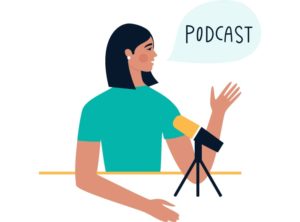 10. You’re willing to put in the work.
10. You’re willing to put in the work.
With great podcasts comes great responsibility. Just kidding, but if you’re planning on launching a podcast, you’ll need to put in some effort to stay consistent with your goals and continue growing through communications tactics like social media, newsletters, blogs and more. You can always hire an agency to help you out, but at the end of the day, behind every successful podcast there’s at least one passionate person working overtime to make it happen.
About the Author
Mackenzie Patterson is Quill Inc.’s digital content strategist.
Creating your brand’s overall marketing strategy is like putting together pieces of a puzzle. It involves creative thinking, taking risks and plenty of trials until you can get the formula just right.
In the age of information, brands have access to a full-blown buffet of tactics at their fingertips—from podcast marketing to experiential events. However, going full throttle and taking advantage of all of them at once isn’t always the wisest strategy.
Audiences and consumers are smarter and savvier than ever before. They can tell when a brand isn’t being authentic to its mission, values and voice, so throwing every marketing tactic at the wall and seeing what sticks probably won’t get you the best results.
You don’t have to use every trick in the book to tell your brand’s story in an effective and engaging way. So how do you know which tactics are best for your brand?
When it comes to podcasting, there’s really no downside to starting a podcast as an extension of your brand. While other tactics like promotional events or advertising campaigns may cost you thousands of dollars, podcasting is technically free to start (more on this later), so you have nothing to lose if you want to give it a go.
If you’re still on the fence about starting a podcast, here are a few questions to consider that may help solidify your decision:
Do you have something to say?
In case you haven’t heard, podcasting is an auditory medium used to tell stories, start conversations and discuss anything from baking bread to murder mysteries. It may seem obvious, but the best reason to start a podcast is because you have a strong message you really want to get across to listeners.
Since podcasts have become so wildly popular, some brands have been hopping on the bandwagon before thinking about their core message and why they want to start a podcast in the first place. Everyone has a story to tell, but it’s important to be strategic about the particular vehicles you choose to spin your brand’s narrative.
You wouldn’t stand up and yell “listen up, everyone!” at the dinner table if you had nothing important to say, so why would you start a podcast without a strong overarching message to convey? Before launching a podcast as a marketing tactic, make sure you’ve done the work to determine what it is you’re trying to say through your podcast and why.
Who are you talking to?
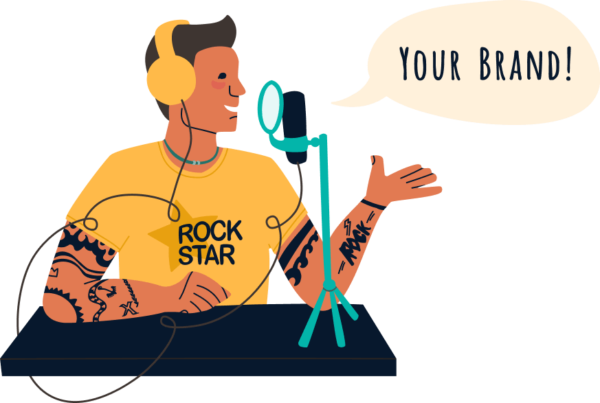 Once you’ve established the mission and messaging for your podcast, take some time to consider your ideal audience base. If you’ve already determined your overall target audience for your brand or business, then this should be a breeze.
Once you’ve established the mission and messaging for your podcast, take some time to consider your ideal audience base. If you’ve already determined your overall target audience for your brand or business, then this should be a breeze.
However, you may want to consider broadening your audience so you can reach more potential listeners and eventually convert them to clients or customers. Consider which demographics you risk alienating with your content—for example, a podcast about vegan living may turn away meat-eating listeners.
Whatever you decide, make sure you’re intentional about your choices and you know the kind of listeners you’re trying to reach as your end goal. This will help the content creation process flow much more organically because you’ll be writing each episode with a target audience in mind.
Is a podcast the possible best use of your resources?
While podcasting is technically a free medium, there are still costs associated with getting one off the ground including hiring freelancers, tech equipment and sound design. But even without considering finances, you’re still going to be allocating a significant chunk of time to starting a podcast, and we all know time is a valuable currency today.
With this in mind, it’s important to consider whether or not starting a podcast will be worth it for you or your brand. As we’ve established, you can’t feasibly undertake every marketing tactic in existence at the same time, so you need to be deliberate with your choices and only execute on the ones that make the most sense for your brand, while putting a pin in the ideas you’re less excited about.
Will listeners be interested in your topic?
Whether your business area of focus is fashion or health food, you really can start a podcast on just about anything, as long as you take the right approach. If you’re wondering whether a show about your brand topic has the potential to be a big hit, see if it falls into any of the more popular podcast topics in the list below:
- True crime
- News
- Sports
- Food
- Health
- Music
- Tech
- Comedy
- Business
- Art
Even if your podcast idea doesn’t fall into any of the above categories, there’s no reason why it couldn’t make a big splash and gain a solid following overtime. No matter how niche or out there your brand topic is, if you’re interested in it, chances are there are others who will be interested, too and happily join your community.
For inspiration, check out these examples of podcasts nailing their niche:
- Commerce Chefs. Discussing all things ecommerce, this podcast is a great example of a niche topic done right.
- C Suite. Covering cyber literacy for the everyday person, this podcast uses an engaging format to spice up their topic and draw in listeners.
- Mr. Open Banking. This podcast focuses on the emerging world of open banking, breaking lofty concepts down into bite-sized bits for listeners.
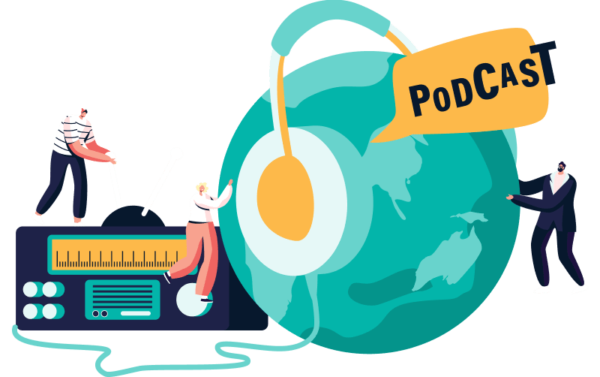 The bottom line
The bottom line
A successful podcast is all about the execution and the passion you put into it, so ultimately, let your enthusiasm be your guiding force. Where there’s a will there’s a way, so a strong desire to be a podcaster will carry you through the trials and tribulations you encounter along the way.
Any marketing tactic you undertake with genuine excitement and authenticity behind it will almost certainly yield success, so if you’ve been itching to get out your microphone and speak your truth, this is your sign to go for it!
About the Author
Mackenzie Patterson is Quill Inc.’s digital content strategist.
The Covid pandemic has meant LOTS of changes. If you are one of the lucky ones, the worst change you have experienced is more time in front of a screen. Working on-line coupled with binge watching with some gaming mixed in can easily translate into more time staring at screens than away from screens.
Here are five excellent tips to help keep your peepers perky.
1 - Take a break, for your eyes sake
For many of us we have spent a large portion of our time moving from one screen to the next. Your eyes, like all body parts, need care and attention to stay healthy. Good news, eye care is fairly simple and free. Unlike getting 24-inch pythons.
 Eye fatigue is serious, so serious that it even has a serious name. Asthenopia. it sounds scary, but most of the time, asthenopia isn’t serious and goes away once you rest your eyes. The correct way to rest your eyes is not to move to another screen, like closing the laptop to doom-scroll on your phone, but to us the "20-20-20" rule. That means looking at something 20 feet away for 20 seconds, every 20 minutes you look at a screen.
Eye fatigue is serious, so serious that it even has a serious name. Asthenopia. it sounds scary, but most of the time, asthenopia isn’t serious and goes away once you rest your eyes. The correct way to rest your eyes is not to move to another screen, like closing the laptop to doom-scroll on your phone, but to us the "20-20-20" rule. That means looking at something 20 feet away for 20 seconds, every 20 minutes you look at a screen.
It is one of the reasons that going for a short walk can make your eyes feel refreshed and invigorated. Taking the dog for a walk or a stroll through a park means your eyes can focus on objects further away, giving them a break from looking at those little pixels on your PC.
If getting outside isn’t an option, experts say that the "20-20-20" rule can be effective through a window as well.
The most important thing is to give your eyes those regular breaks.
 - Position your eyes (along with the rest of you) appropriately
- Position your eyes (along with the rest of you) appropriately
Many of us cause our own discomfort by not properly setting up our devices. For optimum eye health, make sure your computer screen is about 50-70 cms, or arm’s length away from your face. The height of the screen can make a difference as well. Try to position the center of your screen slightly below eye level to decrease discomfort from poor posture. In the case of laptops, this can be tricky, but adding an external keyboard will allow you to move the screen to an appropriate height. Also, adjust the brightness of your screen to match the level of ambient light around you.
Each of these small touches can help take the strain off your eyes.
3 - Eat for eye health
 No surprise here. Your body requires proper nutrition and when it doesn't get properly nourished it can’t to its job. Your eyes included. As part of your healthy diet, choose foods rich in antioxidants, like Vitamins A and C; foods like leafy, green vegetables and fish. Many foods – especially fatty fish, such as salmon – contain essential omega-3 fatty acids that are important to the health of the macula, the part of the eye responsible for central vision.
No surprise here. Your body requires proper nutrition and when it doesn't get properly nourished it can’t to its job. Your eyes included. As part of your healthy diet, choose foods rich in antioxidants, like Vitamins A and C; foods like leafy, green vegetables and fish. Many foods – especially fatty fish, such as salmon – contain essential omega-3 fatty acids that are important to the health of the macula, the part of the eye responsible for central vision.
Your lockdown habits may be hurting your eyes as well as your waist (and liver). Consumption of alcohol or saturated fats may create free-radical reactions that can harm your sight. High-fat diets can also cause deposits that constrict blood flow in the arteries. The eyes are especially sensitive to this, given the small size of the blood vessels that feed them.
4 - Moisturize your eyes.
 This part is pretty simple, staring at a screen means less blinking. Less blinking means tired eyes. Blinking provides two main functions – sweeping tears across the cornea and squeezing the Meibomian glands to release the oily layer onto the tears. The second layer helps to cleanse foreign debris away. It also nourishes your cornea with moisture and a variety of needed proteins and minerals. So you might need to help your eyes clean and moisturize with some over the counter help. Artificial tears help keep your eyes lubricated, which can relieve or prevent dry eyes caused by straining. Look for lubricating eye drops that don’t contain preservatives.
This part is pretty simple, staring at a screen means less blinking. Less blinking means tired eyes. Blinking provides two main functions – sweeping tears across the cornea and squeezing the Meibomian glands to release the oily layer onto the tears. The second layer helps to cleanse foreign debris away. It also nourishes your cornea with moisture and a variety of needed proteins and minerals. So you might need to help your eyes clean and moisturize with some over the counter help. Artificial tears help keep your eyes lubricated, which can relieve or prevent dry eyes caused by straining. Look for lubricating eye drops that don’t contain preservatives.
5 - Don’t avoid the eye doctor
 While the availability of professional eye care can vary depending on where you are, most likely appointments are available to you. With the appropriate precautions, you should not avoid seeking eye care. If you feel your vision has deteriorated or if you are experiencing any problems with your eyes, such as them becoming red or painful, you contact your local optometrist by telephone or online.
While the availability of professional eye care can vary depending on where you are, most likely appointments are available to you. With the appropriate precautions, you should not avoid seeking eye care. If you feel your vision has deteriorated or if you are experiencing any problems with your eyes, such as them becoming red or painful, you contact your local optometrist by telephone or online.
While eye strain will most likely not lead to permanent damage, there are some warning signs of bigger issues
- Severe, sudden eye pain
- Recurrent pain in or around the eye
- Hazy, blurred, or double vision
- Seeing flashes of light or sudden bright floating spots
- Seeing rainbows or halos around lights
- Seeing floating “spider webs”
- Unusual, even painful, sensitivity to light or glare
- Swollen, red eyes
- Any sudden change in vision
Like most health issues, a little bit of care and preventive medicine can make a big difference to your eyes. While it may seem that the human body is a constant hassle of endless maintenance and repairs, it is always worth the effort. Afterall, while some parts are replaceable, you only get one. Take care.
Your team at iotum, the makers of Talkshoe.com, FreeConference.com, and Callbridge.com
Hello TalkShoe users!
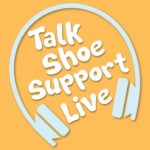 This is Dave Cooper and Jeff Franklin. You may know us from the official support calls, TalkShoe Support Live - Show ID 77, or from our replies to questions submitted by users such as yourself via an email or a ticket to TalkShoe Support.
This is Dave Cooper and Jeff Franklin. You may know us from the official support calls, TalkShoe Support Live - Show ID 77, or from our replies to questions submitted by users such as yourself via an email or a ticket to TalkShoe Support.
For many years we have all enjoyed the great features of the service for free. However, as with any service, it is not free to operate. To help pay for expenses, audio ads will be inserted during the playback of recordings, beginning next week. If you prefer an ad-free listening experience you can subscribe to a paid plan. A free plan will still be available, but will include audio ads. Here is an overview of the upcoming plan options.
And here is a reminder of all the features that will remain in all of the plans:
- Run live shows with a panel of speakers in the show’s studio and an audience in the text chat
- Call in to shows with:
- Numerous worldwide telephone numbers
- Internet connected computers or smart devices
- Use video during live shows by broadcasting with:
- A webcam
- Displaying documents on the screen
 Sharing the desktop
Sharing the desktop
- Broaden your reach by simulcasting on YouTube
- Upload audio recordings made outside of TalkShoe to the service as an episode of a show
- Store all your shows and episodes on the system
- Broaden your reach to more listeners with the automated RSS feed allowing to list on podcasting directories such as Google Play, Apple Podcasts, Spotify, and more
- Record episodes in video with the video recording playable from the TalkShoe website and an audio only
- version playable from podcast directories
- Share a link to your show on other social media platforms
- Send out email reminders of upcoming episodes to followers of your show
- Bring shows from other podcasting platforms to TalkShoe using the show importer feature
- Receive great technical support
And the list of features will only continue to expand! The future of TalkShoe is bright! Reach out anytime with questions. support@talkshoe.com
Thank you for being part of the Talkshoe family!
The Toronto media veteran gives candid advice about asking “hard” questions and why it’s ok to cut an interview short.
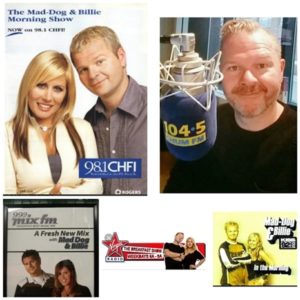 >Currently the co-host of Canada's biggest drive home talk radio show #TheRush on Newstalk1010 in Toronto. Jay “Mad Dog” Michaels is a celebrated Toronto radio veteran, who has dominated ratings with the biggest stations, and was twice voted "favourite Toronto radio personality." So if your favourite actor or musician or newsmaker has been on air in Toronto, they have probably chatted with Mad Dog. We are privileged to have him join us for an interview about interviews.
>Currently the co-host of Canada's biggest drive home talk radio show #TheRush on Newstalk1010 in Toronto. Jay “Mad Dog” Michaels is a celebrated Toronto radio veteran, who has dominated ratings with the biggest stations, and was twice voted "favourite Toronto radio personality." So if your favourite actor or musician or newsmaker has been on air in Toronto, they have probably chatted with Mad Dog. We are privileged to have him join us for an interview about interviews.
How do you prepare for an interview?
Take a look at what they have talked about before.
This seems like the simplest thing in the world and it might seem like it's almost cheating but it's really not. If you are interviewing anybody, they have been interviewed before. So watch the interviews. Read the interviews that they've already done. It allows you to
get a glimpse into what they respond to, and what they don't respond to.
I was interviewing Nelly Furtado. When I was researching and watching interviews. I noticed that she had done her new song on a Portuguese variety show with a huge band and I also saw her do the same song solo in english. I said right out of the gate, “actually one of the things i love about your single is you are just as comfortable on stage by yourself, as you are when you’re singing in portuguese, on tv in front of three million people”. That immediately tells her that this guy does his research. This guy is paying attention. This guy's plugged in and then they immediately get relaxed a little bit.
So the biggest thing for me is I watch, I read, I know the subjects.
What should be the goal of a good introduction?
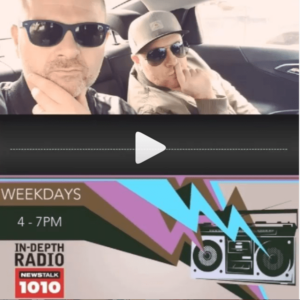 They are talking to you for a reason, get to it.
They are talking to you for a reason, get to it.
When you were interviewing someone they generally have something they're selling. Always fit that into the beginning of the interview. For instance, you know if you're going to talk to a musician you can start with the name of the new album. You might say this is where it’s available for streaming or downloading. Get the stuff that they need to sell out of the way first, in maybe the first or second question.
What do you think makes for a good interview?
You don’t have long to engage the audience.
It should hook you in the first sixty seconds. You can tell in the first sixty seconds whether or not the interest is there, for the artists and the interviewer. Chances are you're not gonna listen to the interview unless you're already interested in the person and they are being interviewed by someone who is engaged.
What are common mistakes that people should be aware of?
Not Listening.
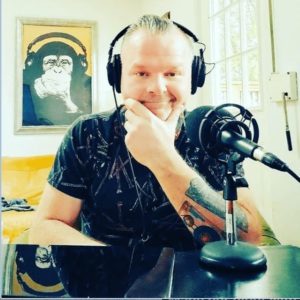 So often people are conducting an interview and they're so concerned about getting the questions right and they're not really listening to the answers. What I tend to do is, I'll just write down an intro and then four or five questions. I may only use the first question. I might get to all five questions. But only by listening can I know which question should be next. Or if I should ask a follow up question that maybe I didn’t write. Yeah, an interview is bad because someone isn’t listening or is not prepared.
So often people are conducting an interview and they're so concerned about getting the questions right and they're not really listening to the answers. What I tend to do is, I'll just write down an intro and then four or five questions. I may only use the first question. I might get to all five questions. But only by listening can I know which question should be next. Or if I should ask a follow up question that maybe I didn’t write. Yeah, an interview is bad because someone isn’t listening or is not prepared.
What do you do when an interview is going badly?
Don’t be afraid to pull the plug.
End it. Yeah because I mean if I'm there and I'm engaged and you're there and you're not engaged. I'm not gonna waste your time, if you don't want to be there. I'll just “thank-you that’s all I’ve got:” And half the time, they will actually perk right up and say, “oh actually do you want to ask me about this or that?”. Or they will just say “great thank you” because they didn't want to do the interview anyway. If they don’t want to be there, if they don’t want to be professional, then don’t waste your time.
What’s your advice for when you have to ask a difficult question?
You can ask anything you want
What’s interesting is that I have been on both sides of it. I worked in music radio, and I work in hard news. The only difference between a hard question in music and a hard question in news is you're not allowed to ask a hard question in music. If you ask a hard question in music, then the publicist will pull the artist, and you will get in trouble. So, you’re not allowed to ask them about a bad break-up or an arrest. In news, you can ask all the hard questions you want. You’re just never going to get an answer. So one way to look at it is, there are no hard questions. At least not any that will get answered.
What’s your advice for a podcaster, who wants to get better?
Can you make the subject relatable?
You can't just go into it without a plan. It may change, you may have to adapt. But a lot of great podcasts had to change before they found their audience. You need to give it time until you find your niche. Make sure you’re not just doing a podcast for the sake of doing a podcast. Try to find the most human way to talk about whatever your subject is. This job is about talking to interesting people, about interesting things. But it’s when you can make the subject human and relatable that you're doing your best.

 Understand Restrictions And Requirements
Understand Restrictions And Requirements Select Appropriate Typography
Select Appropriate Typography Get Marketing
Get Marketing Remote interviews, co-hosts overseas, collaboration across town; When it comes to creating an entertaining and informative podcast, thanks to technology, there’s no limit to what you can do! Furthermore, with advances in podcasting pushing the edge of popularity and reach, podcasters have choices when it comes to recording in person or from afar.
Remote interviews, co-hosts overseas, collaboration across town; When it comes to creating an entertaining and informative podcast, thanks to technology, there’s no limit to what you can do! Furthermore, with advances in podcasting pushing the edge of popularity and reach, podcasters have choices when it comes to recording in person or from afar. Lively Guests
Lively Guests Instead, a virtual recording studio provides all the same benefits and features, but lives online, providing you with everything you need to record, edit and produce your podcast from wherever you and your counterparts are.
Instead, a virtual recording studio provides all the same benefits and features, but lives online, providing you with everything you need to record, edit and produce your podcast from wherever you and your counterparts are. Whether you’re getting together your first or 100th podcast episode, knowing how to write a podcast script will ensure your show is a hit. Writing out your thoughts, cues, important information, interview questions and prompts in a cohesive flow sets the tone and paves the way for a podcast you can lead without worrying about dead air or lack of conversation.
Whether you’re getting together your first or 100th podcast episode, knowing how to write a podcast script will ensure your show is a hit. Writing out your thoughts, cues, important information, interview questions and prompts in a cohesive flow sets the tone and paves the way for a podcast you can lead without worrying about dead air or lack of conversation. Pro-tip: It’s good to stay on track in this style so you don’t have to spend too much time editing later. That being said, you also don’t have to go too much into detail. You can include bullet points of topics and questions to cover, and have some extra ideas on hand.
Pro-tip: It’s good to stay on track in this style so you don’t have to spend too much time editing later. That being said, you also don’t have to go too much into detail. You can include bullet points of topics and questions to cover, and have some extra ideas on hand. Here are a few more helpful tips for how to write a podcast script that sounds professional and works for your listeners:
Here are a few more helpful tips for how to write a podcast script that sounds professional and works for your listeners: Every summer, Podcast Movement, the world’s largest podcast conference, attracts thousands of talented podcasters and leading professionals from every corner of the world to come together to share, grow and evolve. After a year hiatus,
Every summer, Podcast Movement, the world’s largest podcast conference, attracts thousands of talented podcasters and leading professionals from every corner of the world to come together to share, grow and evolve. After a year hiatus, 

 A behind-the-scenes selfie with Gary Krantz and E.B.
A behind-the-scenes selfie with Gary Krantz and E.B.  When it comes to
When it comes to  Here are just a few ideas for engaging listeners in the fun and being more of a proactive podcaster:
Here are just a few ideas for engaging listeners in the fun and being more of a proactive podcaster: Although other podcasters are technically “the competition,” the podcasting world is all one big happy family at the end of the day. Working together is more effective (and fun!) than creating alone in a silo, so don’t hesitate to reach out and make some new friends. Collaborating with other podcasts operating in a similar space to you can help both of you boost your followings and gain exposure to new potential listeners.
Although other podcasters are technically “the competition,” the podcasting world is all one big happy family at the end of the day. Working together is more effective (and fun!) than creating alone in a silo, so don’t hesitate to reach out and make some new friends. Collaborating with other podcasts operating in a similar space to you can help both of you boost your followings and gain exposure to new potential listeners. These days, it seems like every brand has a podcast—no matter the industry, subject matter or area of expertise. With so many online resources and
These days, it seems like every brand has a podcast—no matter the industry, subject matter or area of expertise. With so many online resources and  4. You’re well-spoken by nature.
4. You’re well-spoken by nature. 10. You’re willing to put in the work.
10. You’re willing to put in the work. Once you’ve established the mission and messaging for your podcast, take some time to consider your ideal audience base. If you’ve already determined your overall target audience for your brand or business, then this should be a breeze.
Once you’ve established the mission and messaging for your podcast, take some time to consider your ideal audience base. If you’ve already determined your overall target audience for your brand or business, then this should be a breeze. The bottom line
The bottom line Eye fatigue is serious, so serious that it even has a serious name. Asthenopia. it sounds scary, but most of the time, asthenopia isn’t serious and goes away once you rest your eyes. The correct way to rest your eyes is not to move to another screen, like closing the laptop to doom-scroll on your phone, but to us the "20-20-20" rule. That means looking at something 20 feet away for 20 seconds, every 20 minutes you look at a screen.
Eye fatigue is serious, so serious that it even has a serious name. Asthenopia. it sounds scary, but most of the time, asthenopia isn’t serious and goes away once you rest your eyes. The correct way to rest your eyes is not to move to another screen, like closing the laptop to doom-scroll on your phone, but to us the "20-20-20" rule. That means looking at something 20 feet away for 20 seconds, every 20 minutes you look at a screen. - Position your eyes (along with the rest of you) appropriately
- Position your eyes (along with the rest of you) appropriately No surprise here. Your body requires proper nutrition and when it doesn't get properly nourished it can’t to its job. Your eyes included. As part of your healthy diet, choose foods rich in antioxidants, like Vitamins A and C; foods like leafy, green vegetables and fish. Many foods – especially fatty fish, such as salmon – contain essential omega-3 fatty acids that are important to the health of the macula, the part of the eye responsible for central vision.
No surprise here. Your body requires proper nutrition and when it doesn't get properly nourished it can’t to its job. Your eyes included. As part of your healthy diet, choose foods rich in antioxidants, like Vitamins A and C; foods like leafy, green vegetables and fish. Many foods – especially fatty fish, such as salmon – contain essential omega-3 fatty acids that are important to the health of the macula, the part of the eye responsible for central vision. This part is pretty simple, staring at a screen means less blinking. Less blinking means tired eyes. Blinking provides two main functions – sweeping tears across the cornea and squeezing the Meibomian glands to release the oily layer onto the tears. The second layer helps to cleanse foreign debris away. It also nourishes your cornea with moisture and a variety of needed proteins and minerals. So you might need to help your eyes clean and moisturize with some over the counter help. Artificial tears help keep your eyes lubricated, which can relieve or prevent dry eyes caused by straining. Look for lubricating eye drops that don’t contain preservatives.
This part is pretty simple, staring at a screen means less blinking. Less blinking means tired eyes. Blinking provides two main functions – sweeping tears across the cornea and squeezing the Meibomian glands to release the oily layer onto the tears. The second layer helps to cleanse foreign debris away. It also nourishes your cornea with moisture and a variety of needed proteins and minerals. So you might need to help your eyes clean and moisturize with some over the counter help. Artificial tears help keep your eyes lubricated, which can relieve or prevent dry eyes caused by straining. Look for lubricating eye drops that don’t contain preservatives. While the availability of professional eye care can vary depending on where you are, most likely appointments are available to you. With the appropriate precautions, you should not avoid seeking eye care. If you feel your vision has deteriorated or if you are experiencing any problems with your eyes, such as them becoming red or painful, you contact your local optometrist by telephone or online.
While the availability of professional eye care can vary depending on where you are, most likely appointments are available to you. With the appropriate precautions, you should not avoid seeking eye care. If you feel your vision has deteriorated or if you are experiencing any problems with your eyes, such as them becoming red or painful, you contact your local optometrist by telephone or online. This is Dave Cooper and Jeff Franklin. You may know us from the official support calls, TalkShoe Support Live - Show ID 77, or from our replies to questions submitted by users such as yourself via an email or a ticket to TalkShoe Support.
This is Dave Cooper and Jeff Franklin. You may know us from the official support calls, TalkShoe Support Live - Show ID 77, or from our replies to questions submitted by users such as yourself via an email or a ticket to TalkShoe Support. Sharing the desktop
Sharing the desktop >Currently the co-host of Canada's biggest drive home talk radio show #TheRush on Newstalk1010 in Toronto. Jay “Mad Dog” Michaels is a celebrated Toronto radio veteran, who has dominated ratings with the biggest stations, and was twice voted "favourite Toronto radio personality." So if your favourite actor or musician or newsmaker has been on air in Toronto, they have probably chatted with Mad Dog. We are privileged to have him join us for an interview about interviews.
>Currently the co-host of Canada's biggest drive home talk radio show #TheRush on Newstalk1010 in Toronto. Jay “Mad Dog” Michaels is a celebrated Toronto radio veteran, who has dominated ratings with the biggest stations, and was twice voted "favourite Toronto radio personality." So if your favourite actor or musician or newsmaker has been on air in Toronto, they have probably chatted with Mad Dog. We are privileged to have him join us for an interview about interviews. They are talking to you for a reason, get to it.
They are talking to you for a reason, get to it. So often people are conducting an interview and they're so concerned about getting the questions right and they're not really listening to the answers. What I tend to do is, I'll just write down an intro and then four or five questions. I may only use the first question. I might get to all five questions. But only by listening can I know which question should be next. Or if I should ask a follow up question that maybe I didn’t write. Yeah, an interview is bad because someone isn’t listening or is not prepared.
So often people are conducting an interview and they're so concerned about getting the questions right and they're not really listening to the answers. What I tend to do is, I'll just write down an intro and then four or five questions. I may only use the first question. I might get to all five questions. But only by listening can I know which question should be next. Or if I should ask a follow up question that maybe I didn’t write. Yeah, an interview is bad because someone isn’t listening or is not prepared.